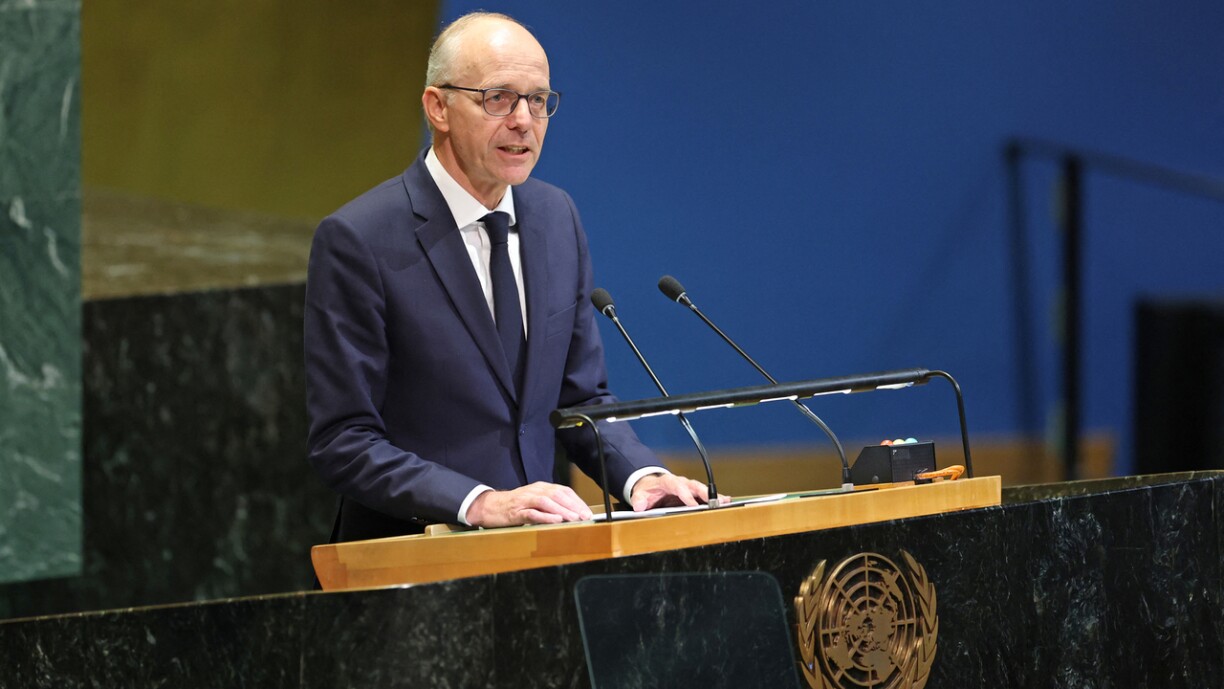
PM Luc Frieden admitted that the move had not been an easy one for many countries, including Luxembourg, but said he felt that history was being made and that the decision had been taken in the name of peace alongside other nations. Foreign Minister Xavier Bettel underlined that both coalition partners in Luxembourg’s government had agreed on this course of action.
Bettel recalled that Luxembourg had already received a mandate back in 2012 to take this step when the timing was right. In his view, now was that moment, since it offered at least a glimmer of hope for peace in the region. He also pointed to the fact that, for the first time, a significant number of Arab states had told the UN that Hamas had no place in Palestine and that elections and change on the ground were necessary.
For Frieden, peace in the Middle East means Israelis and Palestinians must be able to live side by side in freedom and security. That requires the release of hostages and the creation of a democratic Palestinian state. He argued that just as Israel has had the right to exist since 1948, Palestinians must also have their statehood recognised.
Together with Luxembourg, just over 150 countries have now recognised Palestine as a state. Luxembourg’s recognition came later than some because the government wanted to give fresh momentum to the two-state solution, even though, as Frieden noted, neither Israel nor Hamas currently supports it. He added that with France and the United Kingdom, two permanent members of the UN Security Council, now also recognising Palestine, the move takes on a whole new significance.
Bettel, acknowledging Luxembourg’s late move compared to others, remarked that it was “better late than never”, while Frieden stressed that this was not the isolated action of a small nation, but a coordinated step taken with Belgium, Portugal, France, and the UK, giving it much more weight.
Still, Frieden cautioned that Palestine would not spring into existence overnight, as he sees recognition as the start of a long process. He insisted that the decision was not aimed against Israelis or Jews, but rather in favour of peace in the region. Frieden reaffirmed Luxembourg’s support for Israel, but said he could not agree with PM Netanyahu’s policy of trying to “eradicate Gaza and expel its people”, which he argued could never bring peace.
Bettel added that waiting for Hamas to release hostages or for Israel to declare a ceasefire before recognising Palestine could mean waiting forever. In the meantime, hundreds of innocent civilians, including women and children, were dying each day, which only fuelled hatred, he said. Recognition now, he stated, was a necessary step to break the cycle.
Bettel explained that the decision had not been taken for applause but to encourage real change on the ground, in line with the pursuit of a two-state solution. Expecting instant results would be unrealistic, but the process had to start somewhere.
Both leaders expressed hope that the US would see Luxembourg’s move as one made for peace. Frieden stated that Luxembourg remains a close ally of Washington, and he hoped the Trump administration would consult partners before making decisions. Bettel was more direct, arguing that only Donald Trump had the leverage to push for peace, not just in Gaza but also in Ukraine. If Trump were able to bring an end to both conflicts, Bettel said he would be the first to support his nomination for the Nobel Peace Prize.
Frieden revealed that he had informed Israel’s president in advance about his UN speech, telling him that Luxembourg supported peace in the region. Although Israel regretted Luxembourg’s decision, Frieden described the exchange as constructive, as both sides had listened to each other. Luxembourg now hopes for a similarly open reaction from the US.
Luxembourg also offered to support President Abbas and the Palestinian Authority with the reforms needed to build a functioning democratic state, reminding that leadership requires organisation and process, not just recognition, Frieden stated.
Bettel closed his remarks with a stark appeal: he pointed out that while there used to be hundreds of food distribution centres of the United Nations Relief and Works Agency for Palestine Refugees in the Near East (UNRWA), only four remain. As a result, he said, people were dying every week simply because they went out in search of food. He concluded that he has no words for people who are indifferent to this reality.